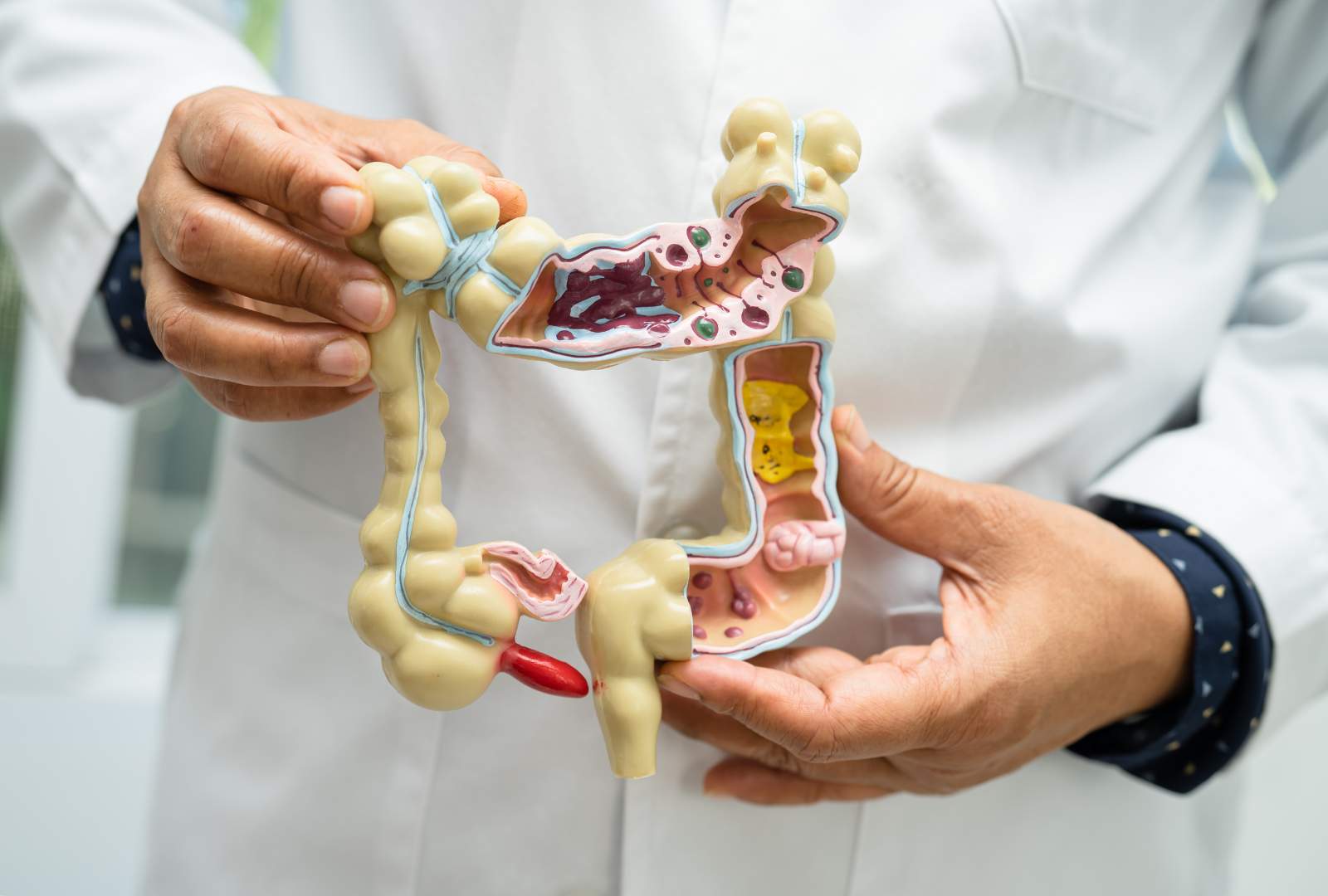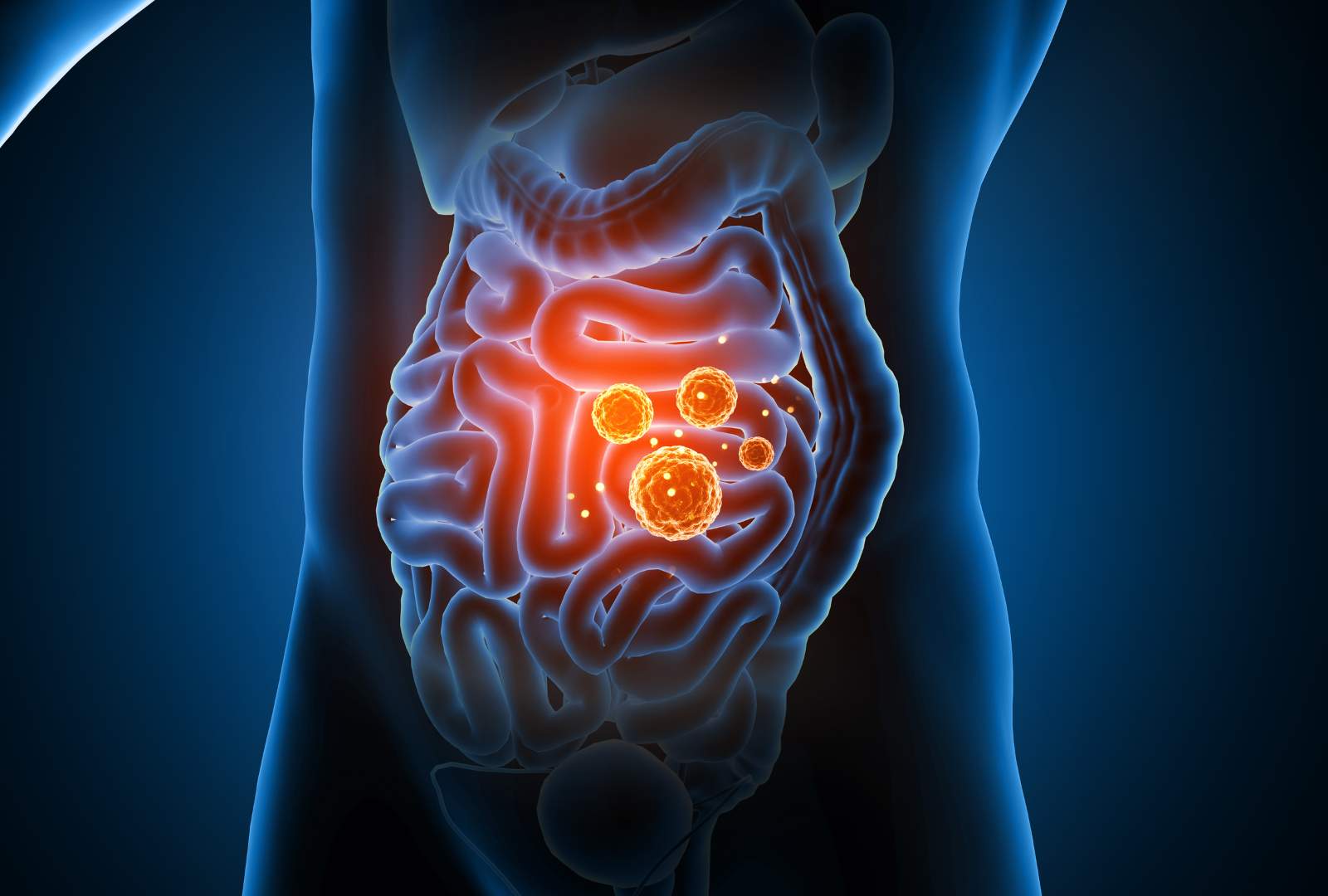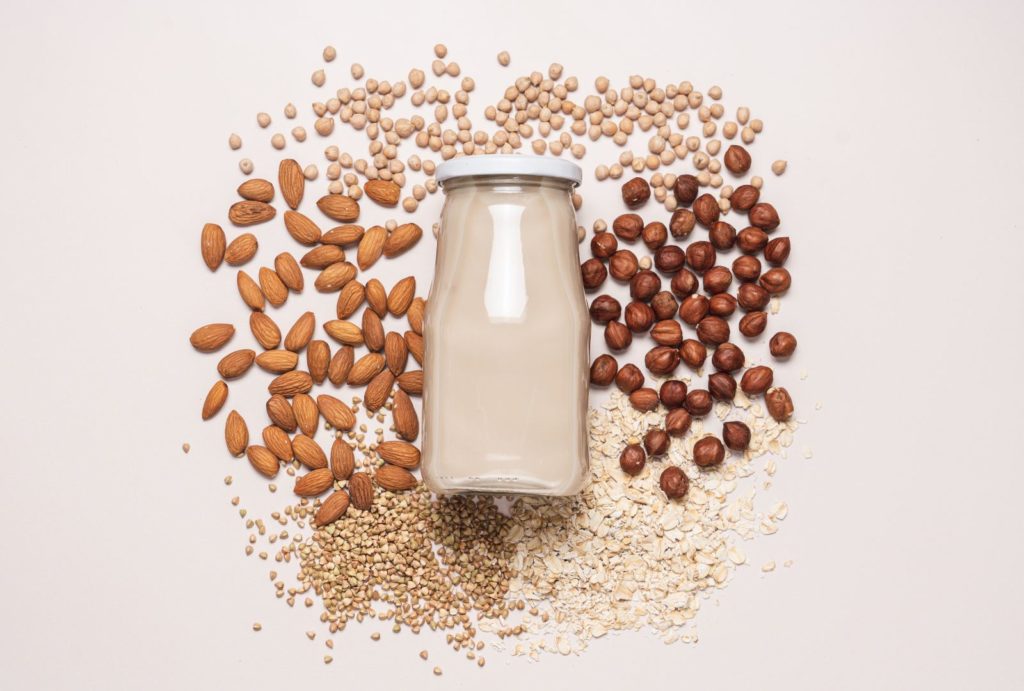Gut permeability also called leaky gut. This condition has gained a lot of attention in the recent years. Briefly, it means that the intestinal barrier is compromised allowing bacteria, toxins, and partially digested food compounds to leak from the digestive trac through the gut barrier into the bloodstream.
The human digestive system is lined with a protective barrier, ie the intestinal epithelium formed by one layer of tightly packed cells that are held together by tight junctions. The role of the tight junctions is to keep the gut lining epithelium cells tightly joined and to regulate the passage of substances into the bloodstream. If and when this barrier is compromised, it leads to gut permeability and is common referred to as “leaky gut”.

What causes leaky gut?
A lot of factors can lead to gut permeability and the most common ones are:
- Dysbiosis: meaning an imbalanced gut microbiome with decreased diversity and an overgrowth of pathological bacteria.
- Stress: chronic stress in everyday life impacts negatively the diversity of the microbiome and stimulates the production of the hormone cortisol that weakens the gut lining.
- Diet: processed foods, refined carbs, sugar, saturated fats, are all inflammatory foods that contribute to gut permeability. Also, a diet poor in fiber will deplete the microbiome as it feeds on our fiber intake.
- Toxins: We are surrounded by toxins in the air, water and food that we breathe, drink and eat, but also through the use of chemically packed house cleaning solutions and beauty products such as soaps, perfumes, shampoos, dyes, make up and nail polish. A special mention also goes to our use of plastic in the kitchen.
- Medications: AINS and antibiotics disrupt the microbiome and contribute to gut lining inflammation and permeability.
- Infections: pathogenic bacteria or parasites damage also the lining of the gut.
From the above, we see that the gut lining is constantly threatened and our daily decisions can either contribute to harming it or protecting it.

How Can We Resolve Gut Permeability?
First of all, changing our lifestyle habits, reducing the harmful impacts and increasing protective measures.
- Diet: an anti-inflammatory plant-based and varied diet, meaning a diet rich in vegetables, fruits, whole foods, lean proteins and healthy fats contributes to managing inflammation in the gut and to protecting its barrier.
- Probiotics: including fermented foods (yogurt, kefir, kimchi, kombucha, sauerkraut, miso) in our diet will promote the diversity of the microbiome and reduce inflammation which in turn will support the gut lining.
- Stress management: reducing the circulating cortisol levels in your body through yoga, meditation, breathing techniques and reconnecting with nature are some of the available measures to manage stress.
- Supplements: aloe vera, L glutamine, zinc, bone broth to name a few will contribute to healing the gut lining.
- Hydration: proper hydration with clean water is paramount to a healthy gut.
What are the potential consequences of a leaky gut?
Here are the main potential consequences of a leaky gut:
- Food sensitivities: as the partially digested food particles leak into the bloodstream, the body this will trigger an immune response leading to sensitivities, allergies or even autoimmune conditions among which Hashimoto or Rheumatoid Arthritis.
- Digestive discomfort: such as heavy slow digestion, gas, bloating, loose stools and irritable bowel syndrome (IBS).
- Inflammation: leaky gut stems from inflammation and inflammation leads to leaky gut and the host of symptoms that we’ve mentioned above, such as autoimmune reactions sensitivities, IBS, but also weight gain and weight loss resistance.
- Mental health issues: a leaky gut leads to a leaky brain. Clinical research has pointed out the link between the gut health and brain disorders such as depression, anxiety or mood swings.

Gut Permeability: Do You Have It?
By making informed choices and lifestyle changes it is possible to restore the gut lining impermeability and gut health. The first measures are reducing the triggers and supporting its healing with an appropriate diet, stress management measures and appropriate supplementation.
It is important to consult with a clinician for appropriate guidance and treatment. Contact me with a free consultation call today: Let’s Schedule A Call




